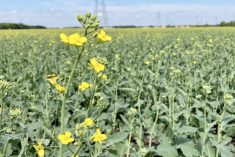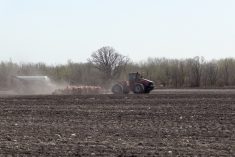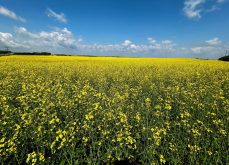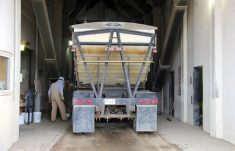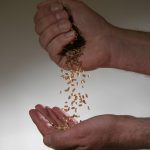With the latest official acreage estimates showing a jump in flax acres across much of Western Canada, the Flax Council of Canada is urging caution.
Agriculture and Agri-Food Canada’s latest Seeded Acreage Report is expecting 1.1 million acres to go into the ground this year, putting pressure on seed supplies, and putting the integrity of that supply at risk, the council says.
They’re concerned saved flax seed could contain the unapproved GM variety Triffid, which has been largely purged from the system.
Read Also

Pulse Weekly: AAFC raise dry pea, lentil production numbers
Agriculture and Agri-Food Canada raised its 2025/26 production calls for dry peas and lentils from its July report. AAFC issued its latest monthly report on Aug. 20, and adjusted exports, domestic usage and ending stocks.
“If you choose to plant your own farm-saved seed, we strongly encourage producers to test your farm saved seed prior to planting to maintain the integrity of the seed supply,” the council wrote in a release.
“Flax producers were instrumental in the elimination of Triffid from the system, but it is critical that producers continue to use a known source of Triffid-free seed.”
They’re also reminding growers most new flax varieties are protected by Plant Breeders’ Rights and can only be sold by an authorized dealer.
Certified seed is still in good supply, and the council is recommending growers returning to flax start off planting certified seed.
They say using certified seed comes with a number of benefits to growers, including:
- assurance of the genetic purity of varietal traits,
- strict standards governing the presence of weed seeds, and
- good germination standards and germ testing prior to sale.
They also note that using bin-run seed includes risks, such as:
- storage damage that can impair germ potential,
- the risk of germination impairment through pre-harvest glyphosate applications, and
- the risk of re-contaminating the seed supply with old varieties such as Triffid.
More information on the reconstituted seed program can be found on the council’s website. Information on seeding considerations for 2017 can also be found there.



